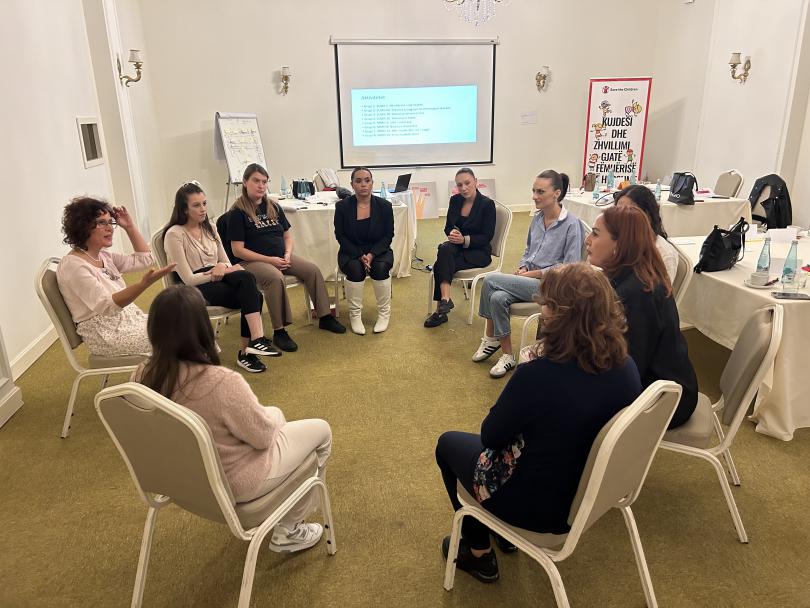Four-Day Training for Developing Early Childhood Literacy and Math Skills

This four-day intensive program provided participants with an in-depth look at developing early literacy and math skills. The training introduced innovative methodologies and practices aimed at helping children develop these skills in engaging and effective ways.
Day 1: Orientation and Training Methodologies
The training began with a clear presentation of the objectives and structure, emphasizing the participants' role as trainers. The initial activities focused on an overview of early skill development (ESD). Discussions revolved around how both children and adults learn, with group work exploring the core principles of the training package. Participants reviewed and summarized training methodologies, and by the end of the day, they were familiarized with the guide and materials to be used throughout the training.

Day 2: Early Literacy Skills
Day two focused on early literacy skill development. Participants were introduced to the fundamental concepts of early literacy and encouraged to reflect on how children learn best through fun and engaging activities. They took part in practical activities, trying out games and exercises designed to support literacy development. The five core components of early literacy were presented, and participants reviewed activity cards designed for each component. The day concluded with practicing interactive reading and group discussions on the importance of this technique in early education.
Day 3: Early Math Skills
The third day shifted the focus to early math skill development. Mini-lectures covered essential math concepts that children should understand before starting school. Practical activities were designed to demonstrate how play and engaging experiences can facilitate learning math skills. Participants shared their ideas on how to support learning in various math skill areas and discussed the role of play as a powerful tool in the learning process. The day ended with each participant making a personal commitment to apply these practices in their classrooms.

Day 4: Implementation and Classroom Preparation
The final day was dedicated to practicing what participants had learned. The importance of constant communication with children was emphasized, focusing on the difference between talking to children versus engaging in conversations with them. Participants practiced using literacy and math activity cards and learned how to integrate these skills throughout the day using routine activities. They also created "big books" and collected literacy and math materials for their classrooms. Finally, participants learned how to set up their classrooms using designated learning zones and made commitments to implement activities that promote early literacy and math.
This four-day training provided trainers and educators with a comprehensive and practical approach to supporting early literacy and math skill development. Through hands-on activities and innovative teaching methods, participants are now equipped to create enriching learning environments that foster the growth of these essential skills in young children.



